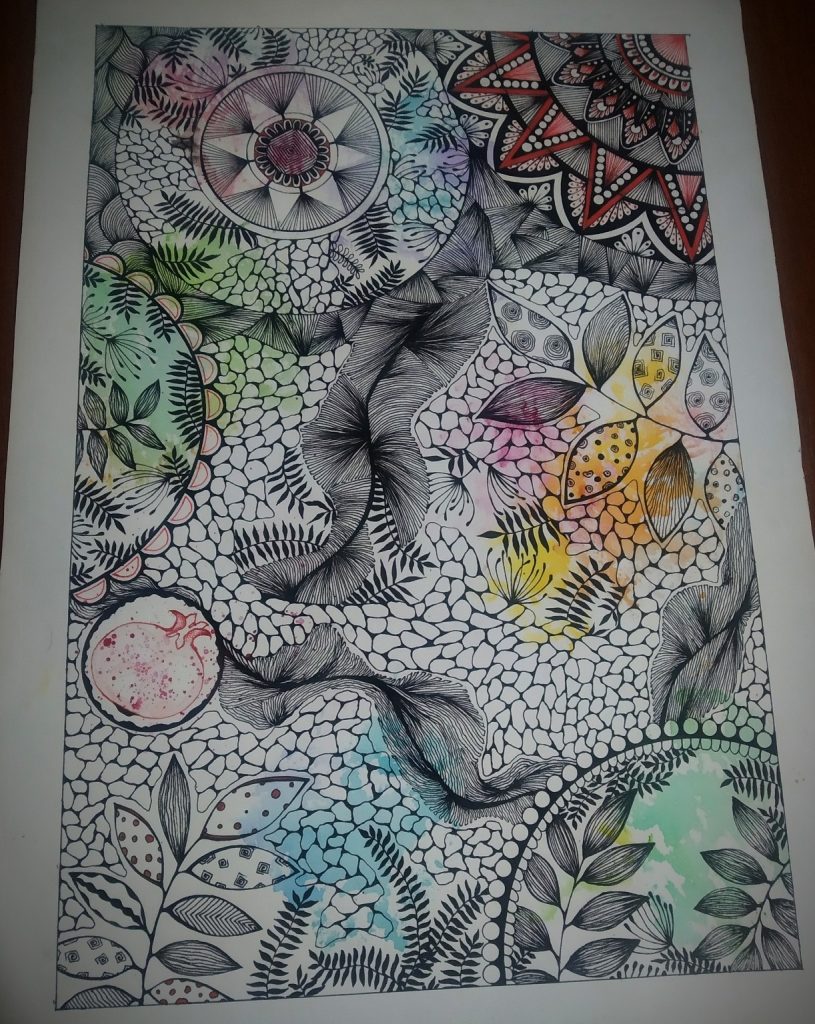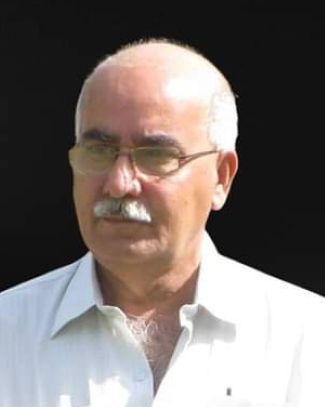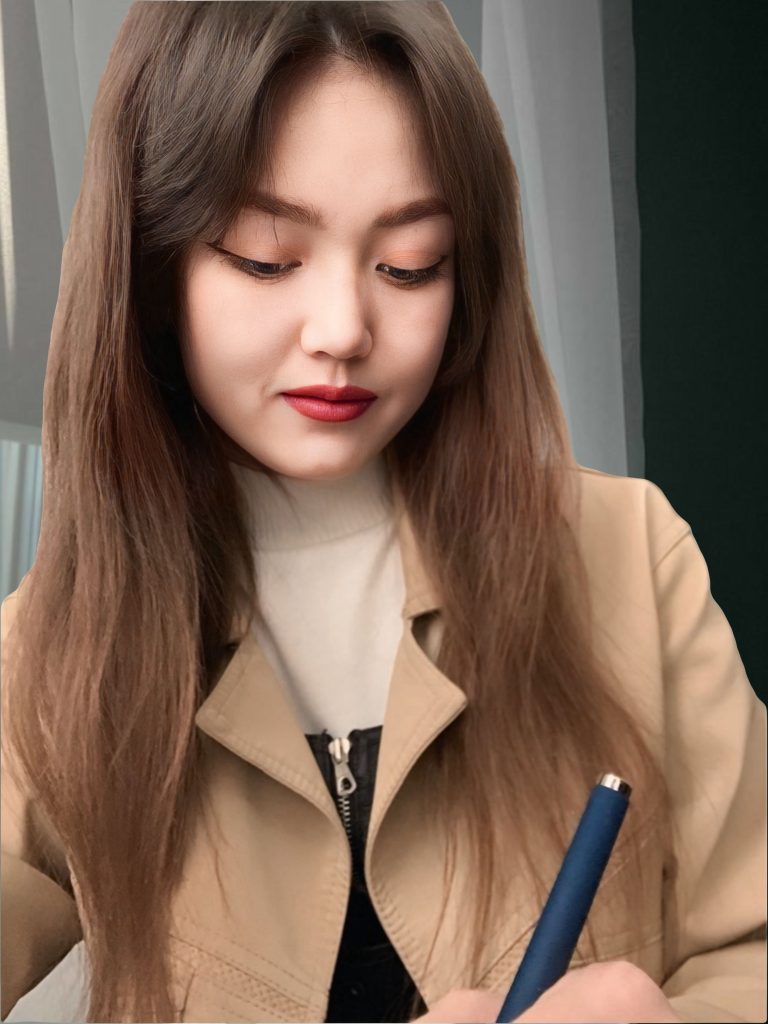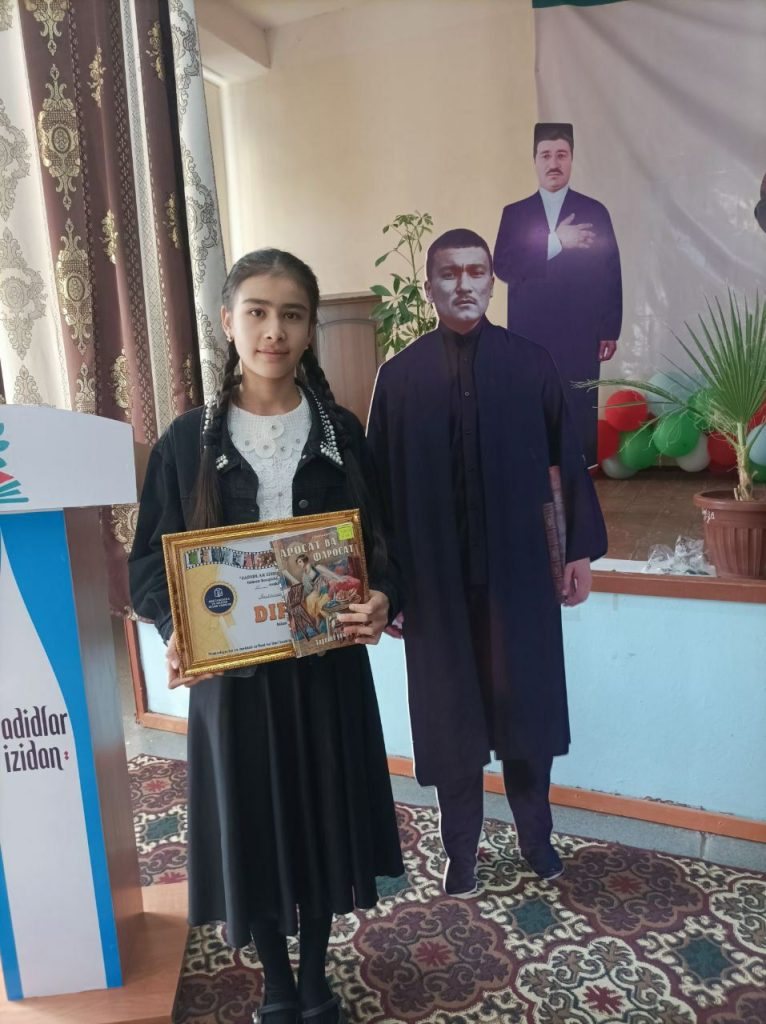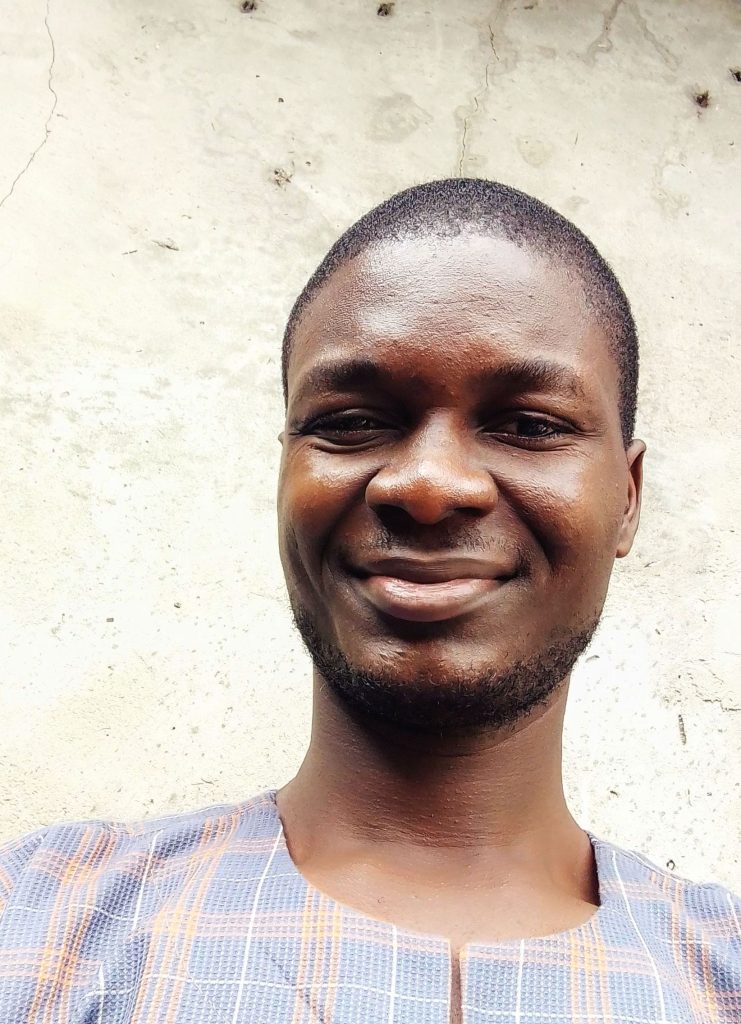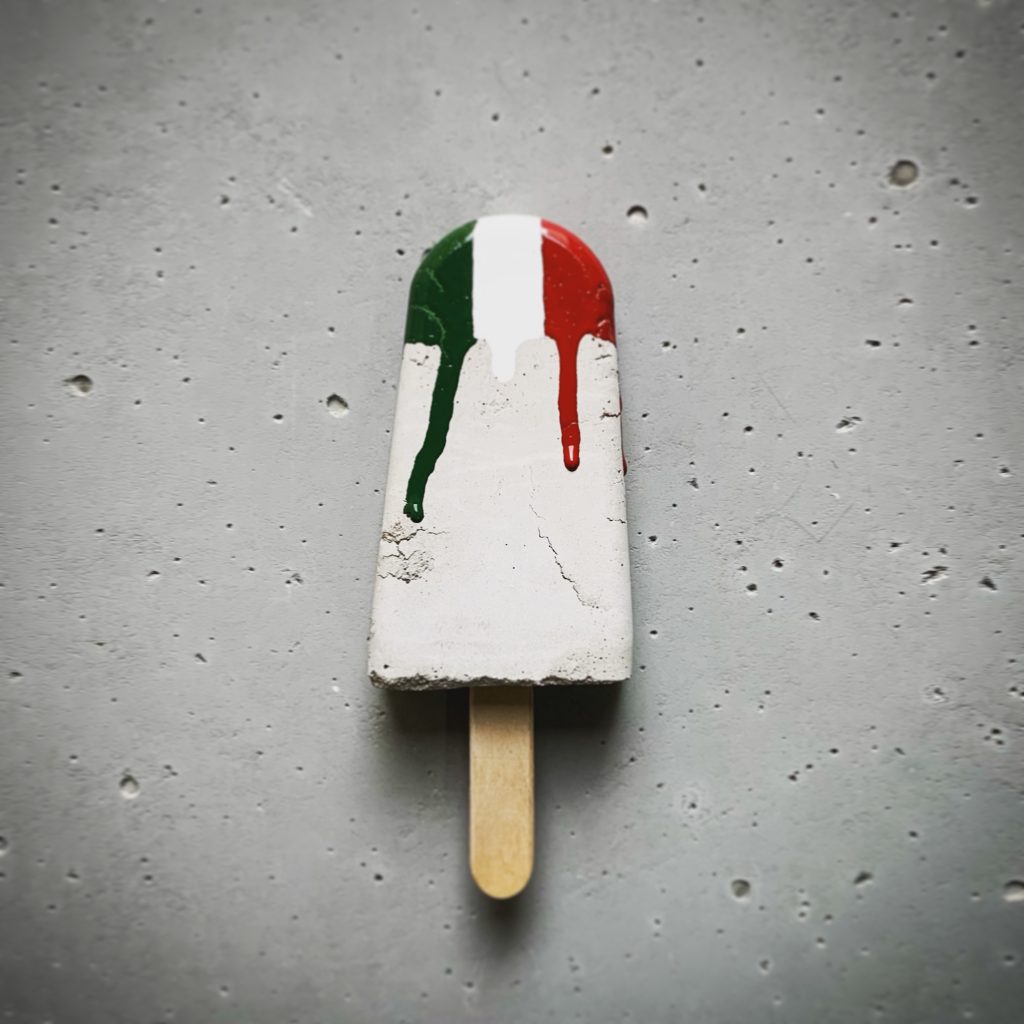
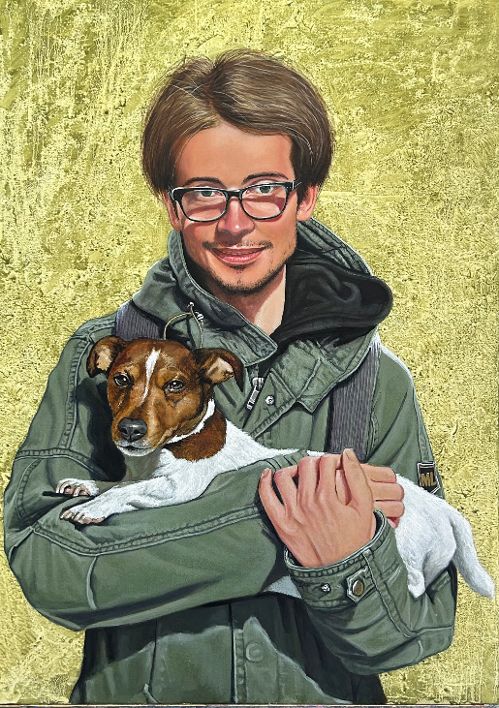
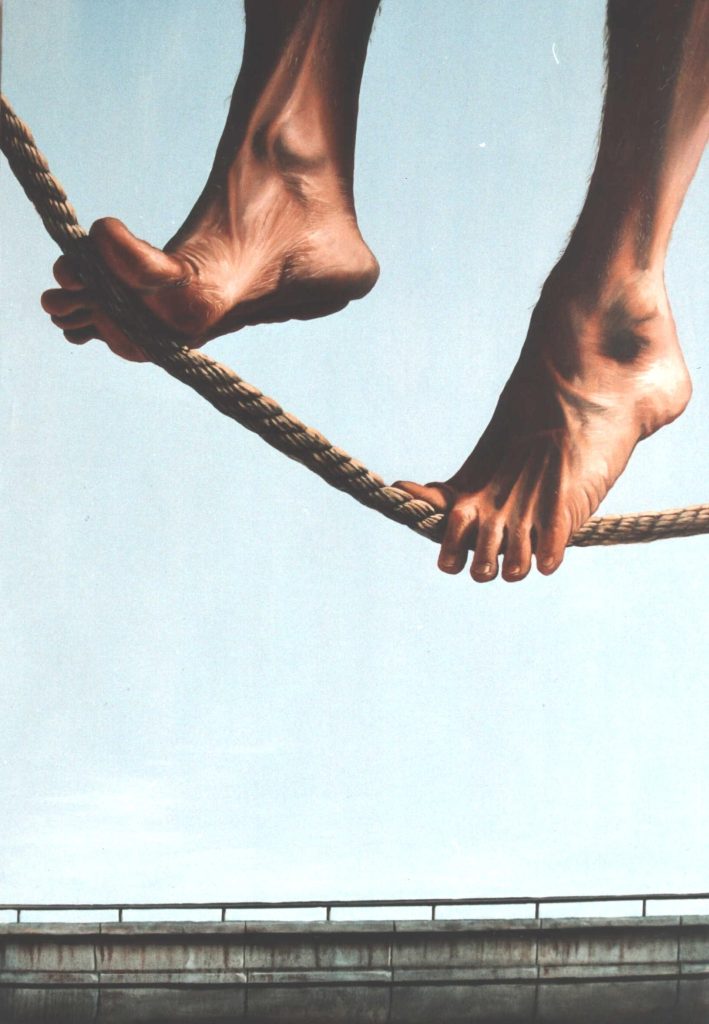





I live in a world that I shape as I please. I do this through virtual, pictorial and sculptural movements, transferring my experiences and photographing reality through the filters of my mind. I have refined this process through years of research and experimentation.
Painting for me is my first love. An important, pure love. Creating a painting, starting from the frantic search for a concept with which I want to convey my message, this is the foundation of painting for me.
Sculpture is my lover, my artistic betrayal to painting. That voluptuous and sensual lover who inspires diverse emotions that strike forbidden chords.
I have been painting Hip Hop since the nineties. Italian and international rappers have been and are the subjects of my works. In 2021 SNOOP DOGG, a rapper who needs no introduction, published on his website with 60 million followers a portrait of him that I painted. The resulting media wave made me known to the general American public and my works were acquired by important public and private collections.
This new series of concrete sculptures has recently been giving me greater personal and professional satisfaction. How was it born? It was the result of an important investigation into my work. I was looking for that special something that I felt was missing. Looking back at my work over the last ten years, I understood that there was a certain semantic and semiotic logic “spoken” by my images, but the right support to enhance their message was not there.
Reinforced concrete, was created two thousand years ago by the Romans. It tells a thousand-year history, full of amphitheatres, bridges and roads that have conquered the ancient and modern world. Now, concrete is synonymous with modernity. Everywhere you go you find a concrete wall: modern man is in there.
From Sydney to Vancouver, from Oslo to Pretoria, this reinforced concrete is present, and it is this presence that supports writers and allows them to express themselves.
The artistic question was obvious to me: if man brought art to the streets to make it accessible to everyone, why not bring the urban into galleries and museums?
I am currently working a lot on my concrete sculptures, a series of works that have made me known to collectors in Northern Europe and the USA. For my concrete sculptures I usually use my personal clothes. During some artistic processes using plaster, resin and cement, I transform them into works of art to hang.
My memory, my DNA, my memories remain “concretized” within them, transforming the person who observes the works into a sort of postmodern archaeologist, studying them as if they were urban artefacts from a remote past. Under a layer of cement are my clothes that I have lived in. I like to think that those who look at my sculptures ask themselves questions, which they can answer by drawing on their educational, cultural and artistic experience.
There is also a series of sculptures dedicated to my clothes worn during COVID , clothes that survived the pandemic ,similar to the finds discovered in Pompeii, after the catastrophic eruption 2,000 years ago.
Sculptures capable of recounting the anguish, fear and inability of man to face an uncertain future and the restlessness of the tragedy of broken lives and destroyed economies.
In the last five years, over 600 international magazines, mostly official magazines of the most important American and Canadian universities, above all Harvard University, have welcomed my work, dedicating articles and covers to it.
Links to My Socials
www.facebook.com/mario.loprete.5
www.instagram.com/marioloprete/
www.linkedin.com/in/mario-loprete-7aa22529

